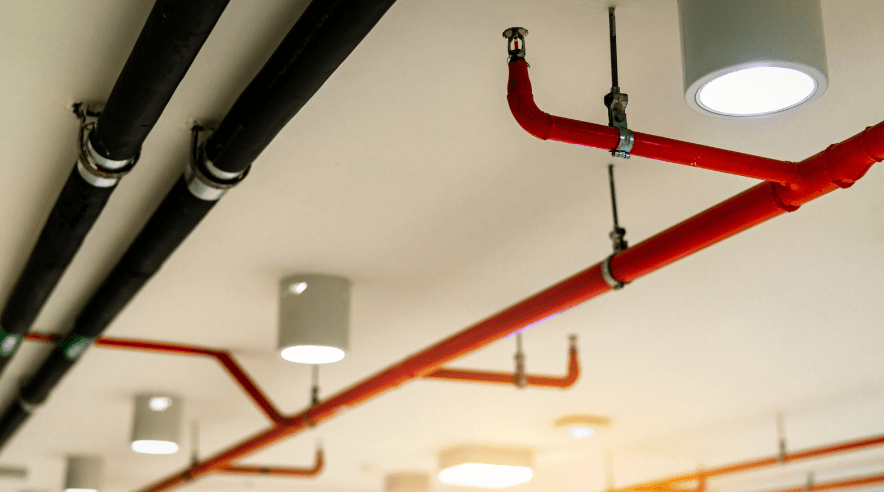
Why Cavity Barrier Inspections Are A Necessity For Your Building
Fire safety is a critical aspect of building management. While sprinklers, alarms, and emergency lighting are essential tools in the event of a fire, passive fire protection is equally important to prevent the entire property from being severely damaged.
Cavity barriers are highly effective in slowing the spread of smoke and flames when fires occur within walls, where passage to adjoining rooms and floors is easy. Cavity barrier inspections ensure that these vital systems perform correctly and can make a significant difference should a fire occur.
In this article we’ll consider why cavity barriers are essential and why regular expert inspections are necessary.
What Is A Cavity Barrier, And Why Is It Essential?
Cavity barriers are integral for slowing the spread of smoke and fire between different compartments or areas within a building. Usually, they are installed within concealed spaces, such as walls, floors, and ceilings, effectively dividing the building into sections. In the event of a fire, cavity barriers restrict the passage of smoke and flames, buying precious time for occupants to quickly and safely evacuate and significantly limiting damage to the building and assets.
Research has demonstrated that buildings without proper cavity barrier inspections face significantly higher risks during a fire. Few building walls are airtight so, without fire cavity barriers, the hot air and gases produced in a blaze within a cavity could easily spread via leak paths to other parts of the building, rendering the compartmentation strategy ineffective. The frightening speed that fire spreads should also be considered: simulations of an insulation board fire within a cavity have demonstrated that a flame can reach 9 metres in only half a minute, putting other floors in serious danger.
What Is Involved In A Cavity Barrier Inspection?
A comprehensive cavity barrier inspection involves assessing whether the barrier has been installed for fire separation, smoke separation, or both. This distinction is vital, as it helps to determine whether the barrier will perform effectively in a fire. Building owners or property managers can also do their part by ensuring the cavity barriers are correctly installed before inspection.
Cavity barriers are an essential component of passive fire protection which aims to contain and limit the impact of fire without the use of active systems such as sprinklers. They are an often overlooked but fundamental part of a building's overall fire safety strategy. Regular cavity barrier inspections are necessary to ensure that these passive fire protection systems function correctly; neglecting to carry out thorough inspections could lead to dire consequences if a fire were to occur and the cavity barriers failed to offer the necessary level of protection.
Contact Us To Find Out More
Cavity fire barriers must not be neglected but, without professional assistance, it’s not possible to accurately judge whether your building’s passive fire prevention measures will perform effectively in a blaze.
To find out more about our cavity barrier inspections or to arrange one at a convenient time, please get in touch with IFI Group today.
Image source:Canva

